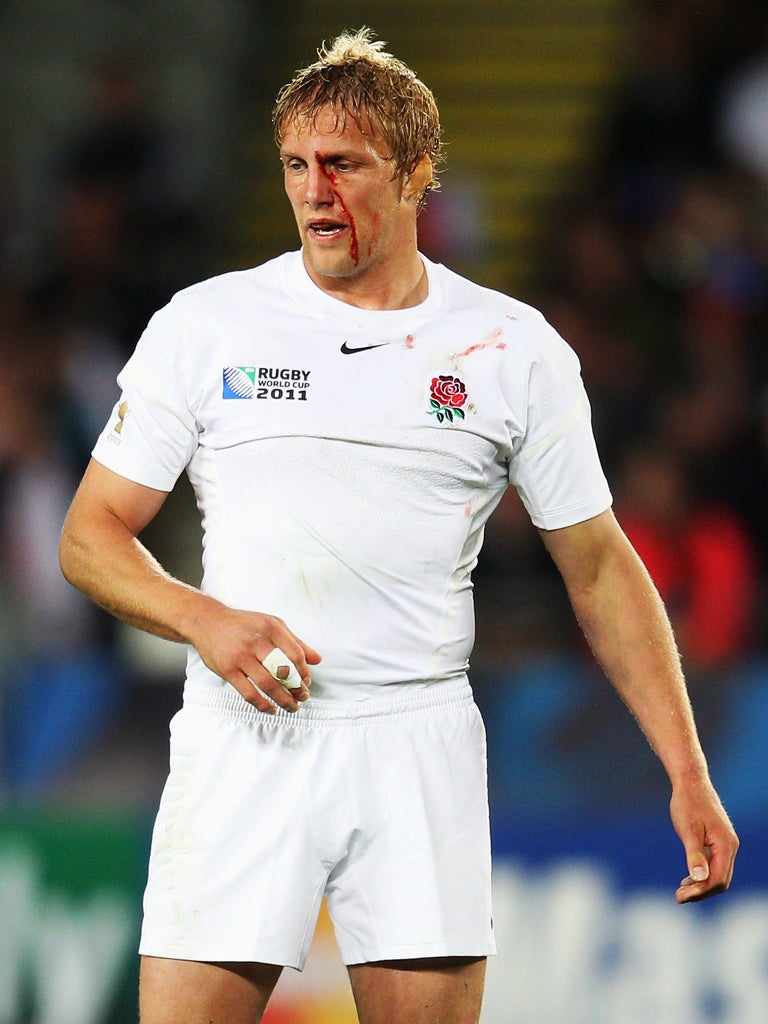David Flatman: England captain must lay down law – and make sure he doesn't break it
From the Front Row: There is a new element to the role now that can't be ignored: commercialism

Team sport has always reserved a position of great honour for one player who is deemed slightly more deserving than all the others. At any level, this position is one that comes with privilege and responsibility, and the person selected is deemed capable of shouldering all of this. But what does a captain actually do?
In football the top man is given an armband that, if sent off or substituted, he rips off in anger and flings at the next in line. He seems – as they all do – to shout a lot and dish out a decent number of rollickings, too. In terms of decision-making, the managers seem to run the tactical game from the touchline between pieces of gum, and every team has a designated penalty taker and free-kick expert.
Seemingly, all that is left is to lead by example. Love him or hate him, John Terry is so committed on the field and so regularly puts his whole body on the line that he looks the sort of man who absolutely must be captain. Off the field...not so much.
Cricket captains have far more to do. They need to be so tactically aware that they can change things in a moment, and they are also often involved in selection; giving teammates the good news or the tap on the shoulder. Come game time, they run the team.
The rugby captain falls somewhere between these two extremes. He must know the game well enough that, even with his head exploding with sweat, blood and fury, he can recognise what is and isn't working and make appropriate changes. He will receive help from his mates and the men on the sideline, but a good portion of nous will always make a better skipper.
Occasionally there will be a make-or-break decision; take the three points or stick it in the corner and back ourselves to get over the line? These calls actually don't come about very often, and there is always the opportunity to seek educated counsel. If there is a penalty that might be within range, the captain asks the man with the boot and he offers a thumbs-up or thumbs-down. Not that difficult.
The tough part of the job is, as with football, leading by example. For me, the captain must consistently be one of the best and most physically inspiring players in the team. He must be a natural, automatic selection and he must be a trier. If the super-skilled star of the team happens to have a ferocious work-rate to match, he might be a good fit as leader. But that desire to graft is priority number one; his efforts can never be questioned.
These days, though – especially as we wonder who will captain England – there is a whole new element to this role, and one that cannot be ignored: commercialism. If the phone of the chosen one was quiet before, it won't be for long. On top of non-negotiable assignments that come with the territory, there will be opportunities to earn big money in exchange for a portion of his free time, and this is where the right balance must be struck.
After the World Cup I read one or two suggestions that England's captain, Lewis Moody, put commercial activity before the team. I wasn't there but, as someone who knows him well, I feel absolutely confident that this is tosh. Watch the bloke play and tell me he lacks commitment.
However, this isn't the point. There will always be ultra-conservative players who regard any photo-shoot or endorsement as sacrilege, just as there will always be blokes who couldn't give a monkey's what anybody else is up to, so long as they give their all in training and matches. And, as much as we might wish our game immune, there will always be jealousy and resentment from those less in demand.
Ideally the new captain will set out a clear vision of what he thinks is acceptable and what is not. This might involve a stance on alcohol consumption, punctuality and appearance, training standards and commercial activity. Then, of course, he must ensure that he never breaks his own rules. With the scrutiny he will face, put frankly, he has to behave himself.
That extra pint might need palming off on to one of his props, that casual dinner date a night or two before a Test match might need to be scrapped in favour of some home cooking. His life will change, and he will regularly have to make difficult decisions when, previously, just existing seemed so easy.
But once he's out there, hammering into the Scots at Murrayfield on 4 February, he'll be doing so as England captain. When it's all going off and his team look to him for guidance – for inspiration – the notion of sacrifice will disappear into the turf. Whatever it takes, it's all worth it.
Subscribe to Independent Premium to bookmark this article
Want to bookmark your favourite articles and stories to read or reference later? Start your Independent Premium subscription today.

Join our commenting forum
Join thought-provoking conversations, follow other Independent readers and see their replies